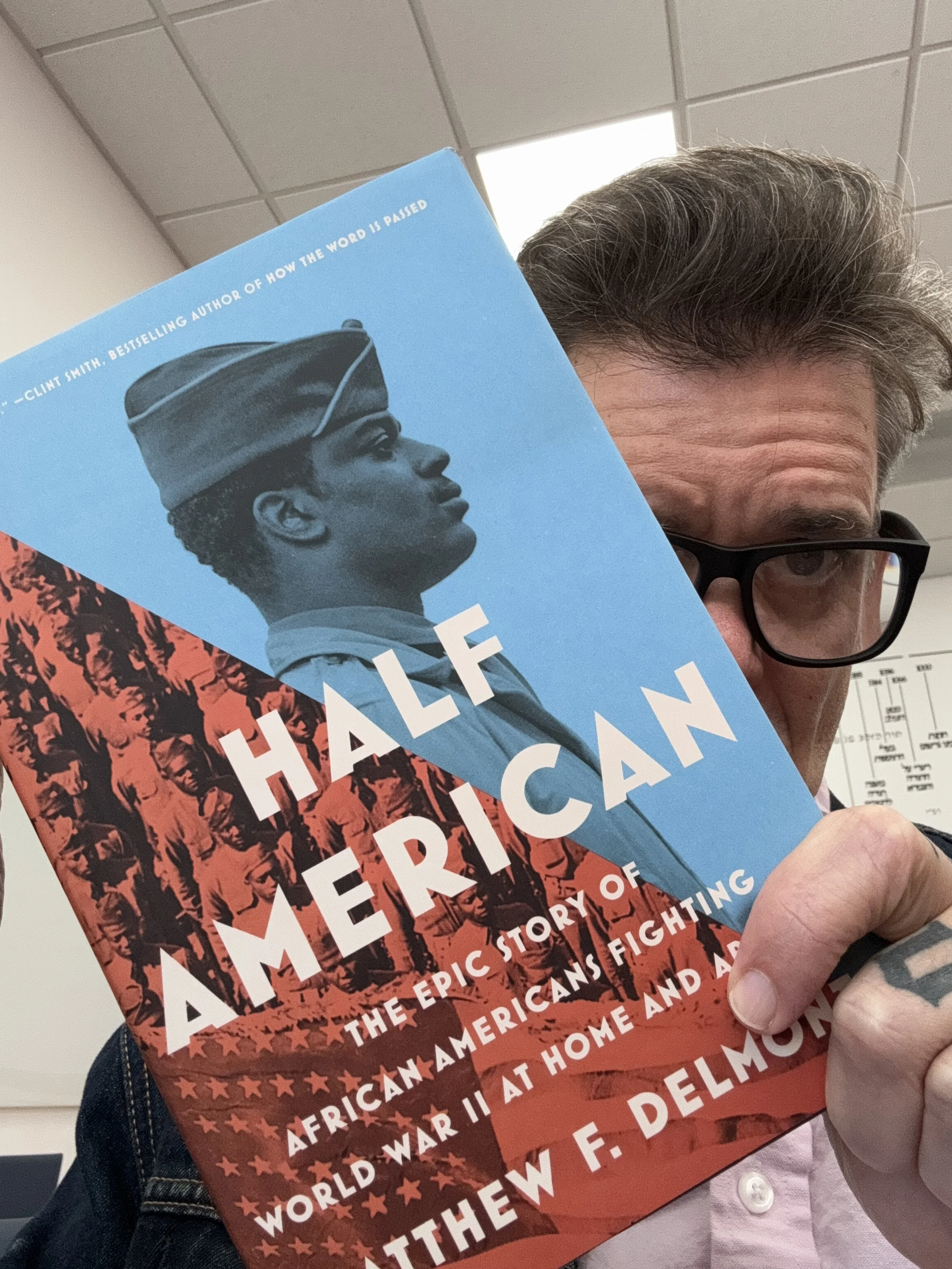Half American by Matthew Delmont - A Review
Guys I’ve just finished the most outstanding book: Half American: The Epic Story of African Americans Fighting World War II at Home and Abroad by Matthew F. Delmont. I can’t stress enough how important this book is for any students of American history - whether or not one specializes in the WWII era. I found it to be among the most insightful and equally important books I have read for some time. My high school history teachers generally ignored this stuff and so, as part of my small effort to change how we teach history, I am going to spend a good deal of time on this material with my honors students.
The story focuses on the Double V Campaign during WWII. if you are unfamiliar with this, here’s a brief synopsis: this campaign aimed to address the dual struggles black people faced on two fronts - the fight against fascism in Europe and the fight against racism at home. The double “V” referred to victory over both enemies - the Axis powers and racial discrimination in the United States. This campaign grew from the frustrations stemming from blacks’ enlistment in a fight for freedom and democracy abroad while being denied these very principles in their pwn country
The campaign gained momentum through the black press, such as the Pittsburg Courier, which played a crucial role in spreading the Double V message and bringing attention to the hypocrisy of fighting for democracy abroad while racial segregation and discrimination persisted domestically. Black activists and leaders emphasized that the fight fro democracy should not be limited to the battlefield but should also extend to the home front The call resonated with many in the black community who sought equality and civil rights.
Delmont notes the gap in our general knowledge - and makes a rather compelling argument for broader historical surveys to expand into this territory reframing a look at the war through the lens of the black experience. Doing so will challenge the idea that WWII is a white story - a so-called “good war” alone, but revealing the more unsavory chapters in the narrative.
Further, Delmont arrives at the conclusion that the United States could not have won this war without the contributions of black Americans. While their combat roles were profoundly limited (with a few notable exceptions), their supportive roles in both supply and construction were vital to the war effort - and though these are typically marginalized stories, they should take front and center.
Message received - here’s one teacher who is going to reframe his course to look more closely at the black experience during the war and task his students with some deep thinking on the subject, particularly as much of the organization work including boycotts, protests, and other forms of civil disobedience took place in anticipation of the coming Civil Right movement.
Also, this material should work very well in comparison to some similar ideas I discuss in my Civil War unit, when black men, encouraged by abolitionists such as Frederick Douglass, enlisted in the Union army as a testament to their patriotism, adherence to the founding principles of equality, and claims to citizenship.
One last thing. I found this book to be far more accessible than the typical academic take on US History - and as such I can comfortably recommend this to high school students as well as adults. Anyone who is interested in challenging their thinking on the war to pick it up and have a crack at another layer of history here - one that has for too long gone missing in the classroom.
With compliments,
Keith
